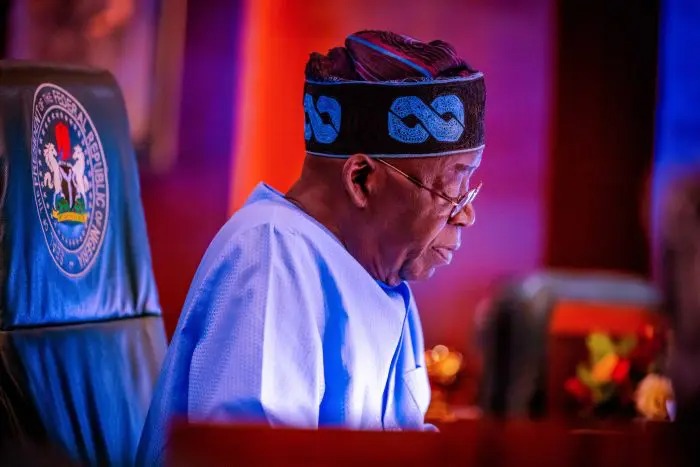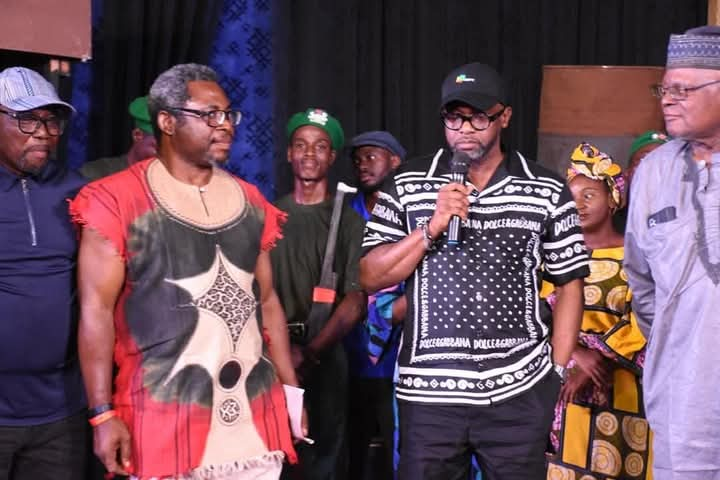Traditional Ruler of Daffo in Bokkos Local Government Area of Plateau State, Da Jonathan Sunday Akuns, and the promoter of Nigerian Indigenous Nationalities Alliance for Self Determination (NINAS), Mr. Tony Nnadi, Thursday disagreed over the modalities to be adopted in birthing a new Constitution for the Federal Republic of Nigeria.
Akuns and Nnadi were among speakers at a consultative meeting convened by the National Christian Elders Forum (NCEF) on new constitution held via ZOOM.
Akuns contended that the 1963 Republican Constitution was not abrogated, all the House of Representatives need to do was to amend it to preserve Nigeria’s democratic and structural foundation.
He said “ethnic cohorts held a constitutional conference in Lagos on 25-26 July 1963 and mandated elected Members of the House of Representatives to enact the Republican Constitution with effect from January 10,1963.

“The enthroned autochthonous 1963 CFRN was never abrogated by military juntas, but simply suspended. Therefore, we need to carefully stitch the democratic strands of Nigeria by reviewing the autochthonous 1963 CFRN.”
Akuns, who is also an Economist and retired bank director, regretted that the Nigerian governing eras of 1966 to 1999 missed or messed with the opportunity to have called for the needed amendment of the 1963 constitution in order to restore the democratic foundations of the federal structure.
“As a result, the Federal Republic of Nigeria (FRN) suffered prolonged period of an interregnum that stifled and stunted the maturity of the tenets of republican governance in Nigeria. India is a global classic of republicanism in the nationhood strides of countries that also emerged by colonial creation.”
The former CBN director maintained that the best route for the constitution review process in the present circumstances is to tinker with the 1963 republican constitution, stressing that that is the best bet to preserve the democratic demands of constitution making.
But, countering Akuns’ postulations, the Executive Secretary of NINAS, Nnadi, argued that nothing short of a brand new corruption produced by indigenous nationalities can set the country right.
Nnadi, a lawyer and constitutional rights activist, noted that since sovereignty belongs to the people, the lie contained in the preamble of the 1999 Nigeria Constitution can only be cured by incorporating the inputs of Nigeria’s indigenous nationalities into a new constitution.
Citing Section 14 sub 2 of the Constitution, the NINAS chieftain explained that what the current National Assembly wants to do is not different from the past attempts at tinkering with the country’s grundnorm.
While insisting that amending the constitution would not berth equity and stability without suspending certain provisions stipulated by successive military regimes to foist a unitary constitution, Nnadi said there was need for a transitional procedure.
Another speaker, Elder Ayokunle Fagbemi, remarked that as the House of Representatives get ready to review the Constitution, it is necessary to build scenarios, noting that while the best case scenario is to birth a new constitution, the worse case scenario is that the legislature would not succeed in amending or getting a new constitution.
Fagbemi praised NCEF for the meeting saying that it would help to guide the Forum on the way forward as it prepares to engage with ethnic nationalities.
Earlier, the chairman of NCEF, Dr. Samuel Gani, disclosed that the consultative meeting was convened for Christian Elders to “deliberate on a new constitution for Nigeria and understand the different perspectives in the proposals for a new constitution before the NCEF with the ethnic nationalities.”
“Presently, there are four different perspectives in getting a new constitution for Nigeria, including *Amendment of the 1999 Constitution by the National Assembly.
“Adoption of the 2014 National Conference Report and its draft Constitution, *Adoption of the 1963 Republican Constitution (for) amendment to reflect current realities and A New Constitution developed by the ethnic nationalities,” he stated. Some of the dignitaries that attended the meeting included General Zamani Lekwot, Elder Nath Okoro, Mrs. Shola among others.




